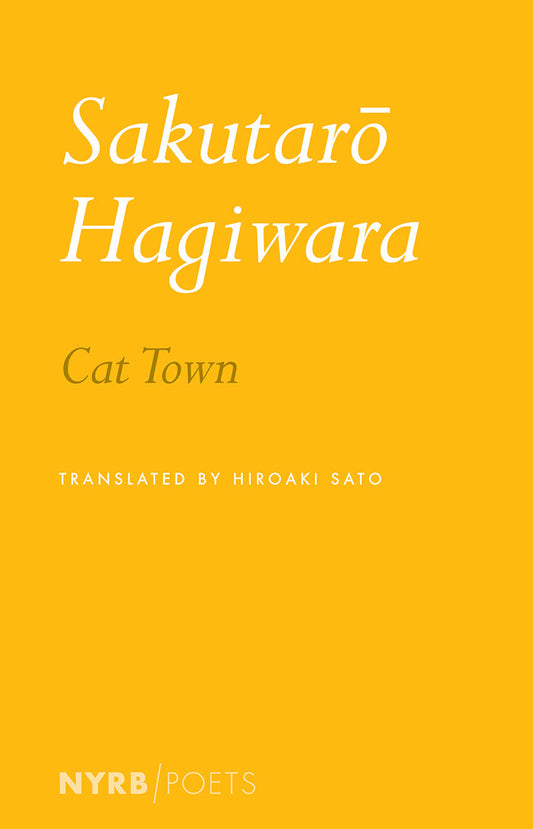Collection:
Sakutarō Hagiwara
Sakutarō Hagiwara (1886–1942) was born in Maebashi, Gunma, the eldest of six children. His father was a successful physician, and Hagiwara enjoyed a sheltered and pampered childhood. At age fifteen he discovered literature and began writing classical tanka verse and publishing in literary magazines. As a young student he moved frequently throughout Japan, unable to finish college, prone to illness, and tormented by youthful lust. In Tokyo, he learned to play the mandolin and guitar, and upon returning to his hometown founded a musicians’ club called Gondola Western Music Society. By 1913, Hagiwara had abandoned classical metrical schemes in his poetry for free verse. He became a founding member of the Mermaid Poetry Society, worked as an editor at literary magazines, and in 1917 published his first book of poetry, Howling at the Moon, which was an immediate success and transformed modern Japanese verse forever. An arranged marriage in 1919 produced two daughters and ended ten years later with his wife eloping with her dance partner; a second marriage in 1938 lasted a year, again with his wife fleeing. His mother is quoted as saying, “He spent all his income from his writing on booze. He was good for nothing, but with all that drinking, he neither increased nor decreased the family money.” After turning to essays and aphorisms for several years, Hagiwara eventually published his second poetry collection, Blue Cat, in 1923. These two books of poems—noted for their sensual philosophy, intimate gloom, symbolist imagery, riveting self-exploration, and confessions of vulgar secrets that blended the literary with the daily vernacular—marked the peak of Hagiwara’s creative heights. Of his writing process, Hagiwara wrote to a friend, “I am merely catching a kind of rhythm that flows at the bottom of my heart and unconsciously pursuing the rhythm, therefore at the time of creation my own self is merely something like a half-conscious automatic machine.” He would go on to write four more books of poems and prose poems, as well as other collections of essays. Hagiwara taught at Meiji University from 1934 until his death from pneumonia at the age of fifty-five.





